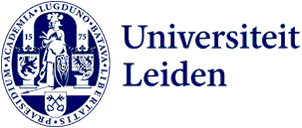
Bruno Verbeek: 'If your teaching is going well, you have to innovate'
Three Humanities lecturers received the Senior Qualification in Education (SKO) this year. University lecturer Bruno Verbeek is one of them. What does he think makes for good education?

'When I started teaching a hundred thousand years ago, I tried to imitate my favourite lecturers from my own undergrad time,' Verbeek looks back. 'That didn’t help at all, so I learned a lot by trial and error.' One of the most important things he says he learned in the process is that teaching is supposed to be constantly changing. 'Is it going well this year? Even if the answer is ‘yes’, you have to innovate. After all, it isn’t only the content of the profession that is constantly changing, but also the students.'
Verbeek himself saw a change in the reactions to his ethics lectures. 'When I started in Leiden, the students were very relativistic. They’d say things like: "Some people are for the death penalty, others are against it. It's just how you look at it." With that kind of response, you spent a long time trying to show that underneath all that quasi-postmodern posing there were indeed moral views. Nowadays, it’s different: students come in with clear norms and values, which sometimes makes it difficult to open the conversation. Especially in ethics, controversial views are questioned to find out the underlying 'why'. So it is now very important to make it clear to students that this is not a discussion about them or their identity, but about their views.'
'Open doors you forget first'
How about moving with the times, changing the way you do things and responding to students so that they feel safe enough to join in the discussions, even if they would rather not enter into them at first. How does Verbeek manage that? 'Try to find out what students' backgrounds are, do one of those awful introduction rounds,' he suggests. 'Who are you, where are you from? You have to make that a bit fun, so I often add a game of 'tell us something about yourself that nobody knows' or 'what is your favourite food and why?' You then very quickly get to behavioural norms: how do we treat each other, what is stupid, what are we not going to do, what are we going to do?'
So, to help things along, Verbeek has more of what he himself calls his ‘goofy gimmicks'. 'Does your lecture have a seminar format, but the students sit in rows one after the other? Just rebuild the class, make it into a curve. That one student who is too shy to ever say anything? Put them next to you. That's less confrontational than facing you. Start by asking confidence-building questions, to which students are sure to know the answer. These are all open doors, but they are the ones you forget first. That’s why it is also good to go and observe a colleague from time to time. Not in an atmosphere of assessment, but just to see how someone else does it. You can learn a lot from that.’
Further training for everyone
At the same time, Verbeek also realises that inspiration sessions like the lunch bytes or the Education Showcase are often difficult to schedule in the already overcrowded diaries of many teachers. 'It would be good if the faculty had a policy that made it default for lecturers to get refresher courses. That doesn’t have to be a complete teaching course, but the voluntary sessions that are currently organised are often the first to fall by the wayside. I myself therefore often plan a 15-minute block in our staff meetings in which something education-related is discussed: how do you organise a collaborative assignment? How do you make a good multiple-choice exam? Thinking about this more systematically not only improves teaching, it also increases job satisfaction and can reduce work pressure.
Senior Teaching Qualification
The SKO is a qualification for lecturers who play a leading role in the development and innovation of education at the curriculum level (i.e. beyond their own discipline). To achieve this qualification, lecturers must put together a portfolio that shows that they meet four final learning objectives:
- Conduct within the academic teaching environment;
- Creating and elaborating a didactic programme with a view to the context of a curriculum;
- Preparing and providing teaching;
- Impact on education within one or more degree programmes that extends beyond one’s own teaching programme.
In addition, an SKO candidate must be a lecturer who already has a Basic Teaching Qualification (BKO), has taught at the university level for at least five years in various subjects and years, and has applied a variety of educational methods in doing so. In addition, the lecturer must show that they have developed initiatives and made contributions that have an educational impact within one or more degree programmes transcending their own course or discipline. You can read more about obtaining an SKO here.
